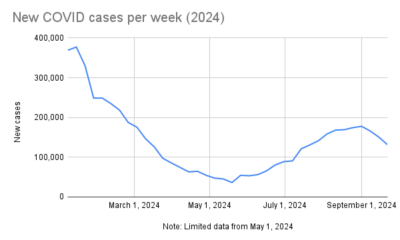Reviews
Problem Gambling in the Digital Age: Global Responses

The transfer of gambling activities to the digital world revolutionised the industry, making risky entertainment more accessible than ever before. Such flexibility brought many benefits for casino enthusiasts while delivering plenty of challenges. Compulsive gaming has been a significant problem for decades, and the broad accessibility of online platforms has boosted it.
Modern risk-seekers can enjoy the chosen content with a few clicks, and this approach significantly increases the number of addicted individuals. Governments strive to cope with the challenge by improving market regulations and launching specific authorities to control gambling activities. These bodies implement numerous consumer protection measures to prevent the harmful consequences of excessive gaming.
Integrating Gambling Blockers and Self-Exclusions
Although users are often not inspired by the possibility of being banned from their favourite entertainment, self-exclusions are becoming more widespread in 2024. The UK was the first to implement the tool in 2018, and now, the nationwide GamStop covers all in-country platforms. Its participants mentioned efficiency in coping with compulsive gambling, but the UKGC constantly tightens regulations for operators and customers.
Therefore, many users prefer no GamStop casinos that also adhere to responsible gaming principles but have fewer limitations for players. Platforms outside British jurisdictions are safe for users and offer more opportunities and enhanced data protection. However, risk-seekers should be attentive to their condition and maintain a healthy approach to this pastime.
Tightening Gambling Regulations Globally
Online casinos have no borders and can target players wherever they are. However, such flexibility can appear harmful, which is why many countries’ governments have already implemented specific industry legislation. Some states completely ban digital gambling, but this approach often leads to the development of illegal markets.
Many states adjust regulations to modern needs and integrate limitations and special requirements to reduce the potentially harmful impact of online casinos and bookmakers on their residents. Identity checks, financial assessments, and restrictions on gambling advertisements are some measures used by controlling authorities to minimise risks and increase the population’s well-being.
Preventing Underage Gambling
This approach is critical for the sector in 2024 since addictions often target the most vulnerable populations. Youngsters are usually more prone to take inadequate risks and, at the same time, have worse financial conditions. Therefore, iGaming companies implement mandatory verification procedures to comply with KYC policies. Customers must provide their valid documents and personal details so that casino administrations can ensure they are of the legal age to participate in gambling activities. Identity checks are also critical to learn whether users are self-excluded due to gaming-related problems.
Promoting a Responsible Gambling Approach

Trusted and reliable casino operators must inform customers about the possible risks of joining platforms and encourage them to stick to safer gaming policies. Users must be aware of bankroll management techniques and ways to minimise losses on gambling sites. Popularising low-deposit platforms is essential in this case: casino members can deposit a couple of pounds and get maximum benefits in exchange. Here, risks are small since users won’t struggle with significant financial losses or end up in debt.
Moreover, online casinos can implement AI-based mechanisms analysing players’ activities. If the technology notices excessive gambling, it informs members about it and provides them with recommendations to take a break. Reality checks are also popular in 2024: gamblers are informed that they have reached their limits and have a several-minute cooling-off period to reconsider their actions and have time to leave the website or think over their future strategies.
Making Helplines & Support Groups Widely Accessible
Gaming-related disorders are severe and require immediate intervention. However, users are often challenged when facing problems and cannot cope independently. In this case, online casinos offer instant access to non-profit organisations that provide support, treatment, and further guidance on responsible gambling how does UK authority. More and more operators implement this approach and guide compulsive users on their way to recovery.
Collaborating with Celebrities to Increase User Awareness
Advertising safer gaming requires complex measures from operators, and partnering with famous athletes, actors, etc., is among the working tools for preventing compulsive problems. Users can see the examples of their favourite celebrities and tend to follow their example when spending time in online casinos and sportsbooks. This approach allows operators to educate players on responsible behaviours on risky websites, specifically concentrating on the younger generation. Of course, it only works as part of a complex mechanism, including quick access to helplines, self-exclusion tools, and educational campaigns.
Final Insight
Uncontrolled gambling activities are the major industry challenge that has yet to be resolved. The global iGaming accessibility boosted user interest in this entertainment, significantly growing the number of people with addictive behaviours. The good news is that the market has timely reacted to the problem and implemented numerous user protection measures. Reality checks, customer verifications, self-exclusion tools, and informational campaigns to increase user awareness about responsible gambling are efficient in preventing compulsive gambling and enhancing the population’s well-being.

-

 Legal1 week ago
Legal1 week agoAlaska man arrested after threatening to kill U.S. Supreme Court justices
-

 US News1 week ago
US News1 week agoDeath investigation at the Indian Embassy in Washington, D.C.
-

 Legal2 days ago
Legal2 days agoWisconsin Amber Alert: Oaklee and Ryker abducted in Ashland
-

 Legal4 days ago
Legal4 days agoFlorida Amber Alert: Darryl Folmar III abducted in Pensacola
-

 Legal5 days ago
Legal5 days ago21 people shot, 4 killed, in Birmingham, Alabama mass shooting
-

 US News5 days ago
US News5 days agoU.S. COVID update (September 22): More than 1,300 new deaths
-

 Legal4 days ago
Legal4 days agoShots fired at Democratic Party campaign office in Tempe, Arizona
-

 Legal6 days ago
Legal6 days agoShooting outside Clarksville, Tennessee mall, no injuries

